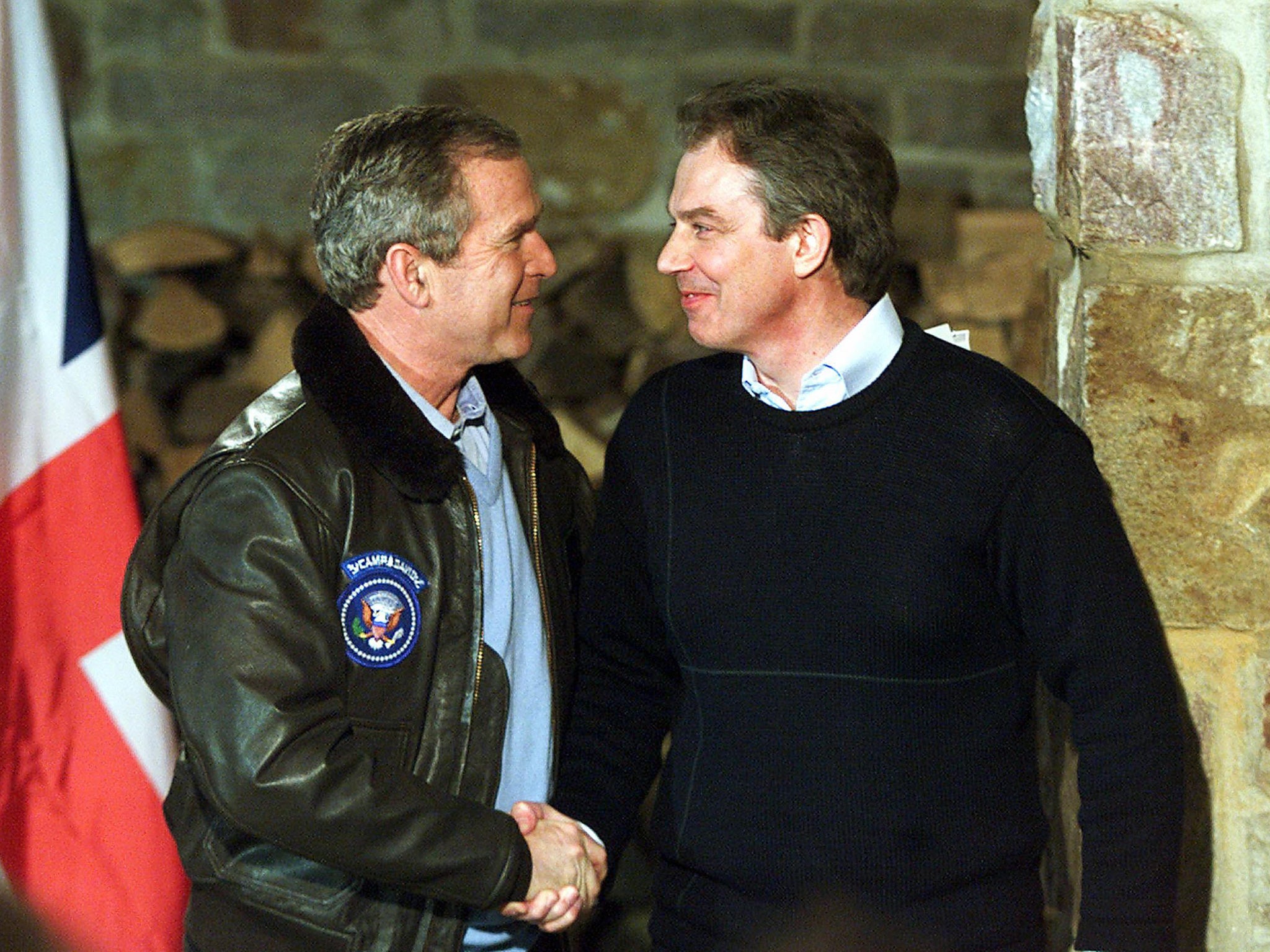Tony Blair Iraq war memo prompts fresh calls for Chilcot inquiry to be published
In the leaked memo from a year before the invasion Colin Powell tells President Bush the Prime Minister 'will be with us'

Your support helps us to tell the story
From reproductive rights to climate change to Big Tech, The Independent is on the ground when the story is developing. Whether it's investigating the financials of Elon Musk's pro-Trump PAC or producing our latest documentary, 'The A Word', which shines a light on the American women fighting for reproductive rights, we know how important it is to parse out the facts from the messaging.
At such a critical moment in US history, we need reporters on the ground. Your donation allows us to keep sending journalists to speak to both sides of the story.
The Independent is trusted by Americans across the entire political spectrum. And unlike many other quality news outlets, we choose not to lock Americans out of our reporting and analysis with paywalls. We believe quality journalism should be available to everyone, paid for by those who can afford it.
Your support makes all the difference.Sir John Chilcot is under mounting pressure to publish the findings of Iraq War inquiry after a leaked White House memo suggested Tony Blair pledged his support for war a full year before the invasion.
In the memo, former US Secretary of State Colin Powell tells President George W. Bush that Mr Blair “will be with us should military operations be necessary”.
It was written in March 2002, a week before the notorious Crawford summit at the President’s ranch in Texas, at which the Prime Minister publicly stated he was still “considering all the options” and proposing military action.
Responding to the leaked memo, published in the Mail on Sunday, Mr Blair’s office said the revelations were consistent with the former Prime Minister’s statements at the time, and his evidence to the inquiry.
But leading calls for Chilcot to speed the publication of his report, former SNP leader Alex Salmond said the new revelations “needed to be looked at very seriously”. Downing Street is also anxious to see the report, which is expected to shed light on the timetable of decisions that led to British involvement in the war, published as soon as possible.
Chilcot is expected to face calls to step down as chairman of the six-year-old inquiry from senior figures in Parliament this week. Lord Morris of Aberavon, who served as attorney-general under Blair, has tabled a motion calling on the Government to consider removing Chilcot and publishing an interim report based on evidence already gathered.
David Cameron has previously expressed frustration at the timescale of the inquiry, and spoke in August of his wish to see it completed “for the good of the families” and “good for the country”.
The 2002 memo, sent to Mr Bush to prepare him for the Crawford summit, states that Mr Blair will use the meeting to present “the strategic, tactical, and public affairs lines that he believes will strengthen global support for our common cause”.
It also states: “Mr Blair may suggest ideas on how to make a credible public case on current Iraqi threats to international peace.”
Five months after the summit, Mr Blair presented the notorious dossier on Saddam Hussein’s weapons capacity to Parliament, which contained the later discredited ‘45 minute claim’.
Responding to the leak, Mr Salmond said: “This memo is extremely damaging for Tony Blair and the net is now closing around the former Prime Minister.
“The Chilcot Inquiry has still to be published and these revelations need to be looked at very seriously.”
Conservative MP David Davis called the leaked memo “one of the most astonishing documents” he had ever read.
“It proves in explicit terms what many of us have believed all along: Tony Blair effectively agreed to act as a front man for American foreign policy in advance of any decision by the House of Commons or the British Cabinet,” he said.
Join our commenting forum
Join thought-provoking conversations, follow other Independent readers and see their replies
Comments